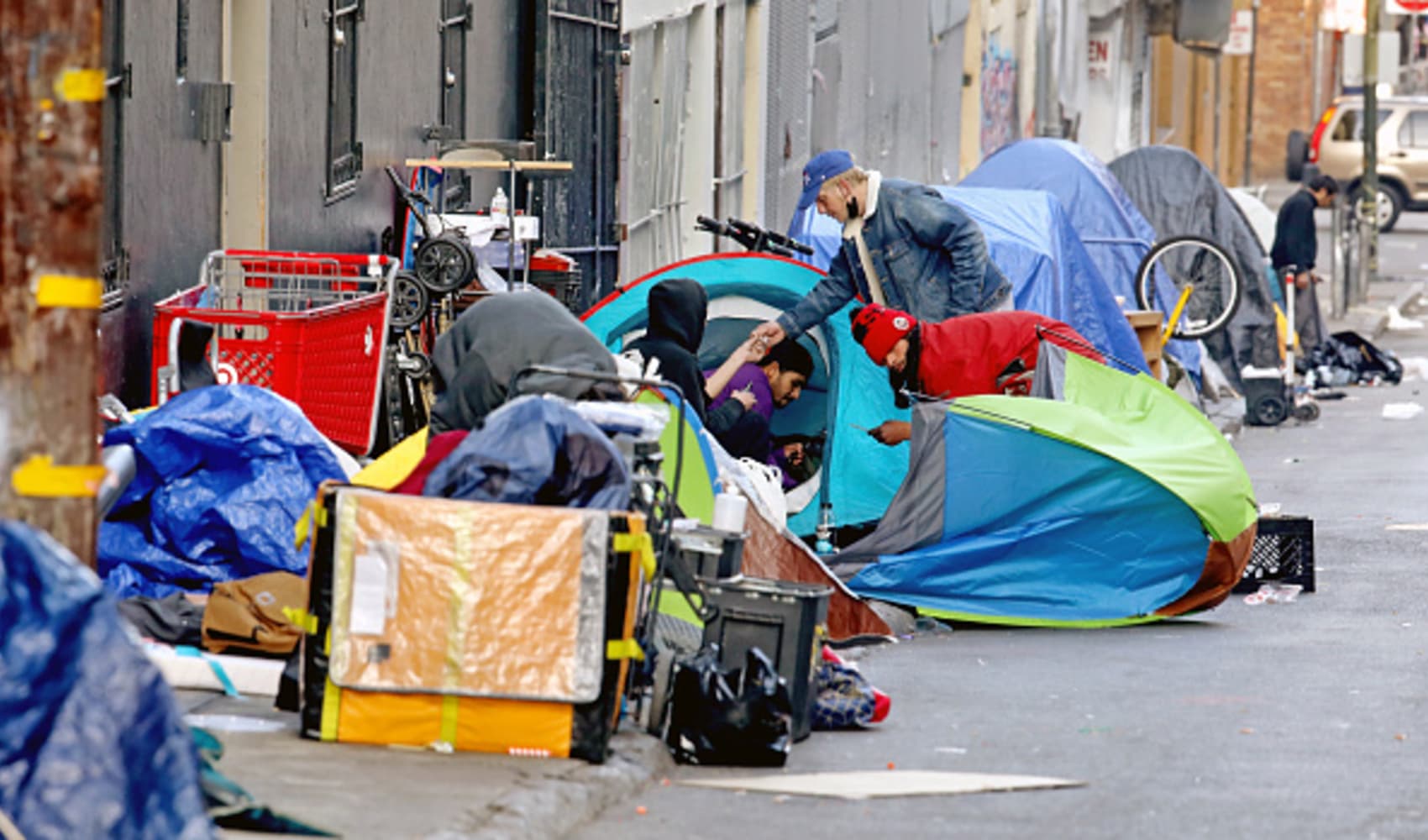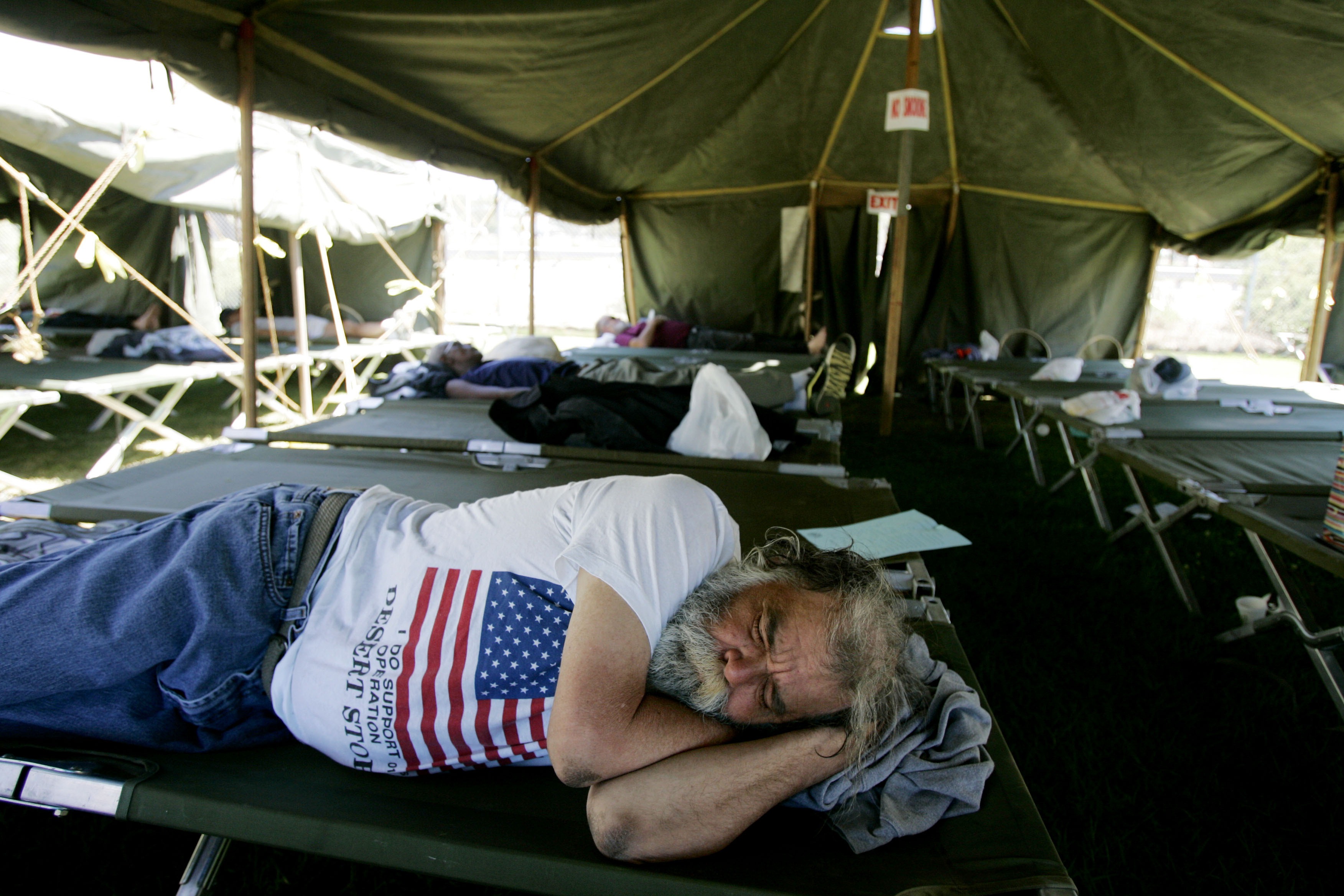Two South Bay cities voted Tuesday to move forward on homeless encampment bans — the latest in a move to criminalize homelessness following a Supreme Court ruling earlier this year.
The idea passed its first reading in the Chula Vista City Council, and the National City Council voted unanimously to put the ban into effect, following the county and cities of San Diego, San Marcos, Escondido and others. National City's ban is scheduled to go into effect in a month.
Relevant content:
National City Mayor Ron Morrison says the city is already seeing an influx of unhoused people as a result of San Diego's encampment ban.
Get top local stories in San Diego delivered to you every morning. >Sign up for NBC San Diego's News Headlines newsletter.
"These are all people from other places that get pushed and pulled from other places," Morrison said. "We kind of get stuck with it."
The National City mayor said the city needs to try and create some sort of buffer, especially since neighboring Chula Vista is also prepared to enact a similar ban.
"In the last four years, the unsheltered crisis has grown with a number of unsheltered doubling from prior years," a city staff report from the city of Chula Vista reads. "Unsheltered persons frequently occupy public spaces and other places not meant for human habitation."
The ordinance that was considered at the 5 p.m. meeting in Chula Vista would "prohibit campsites and sitting, sleeping, lying, or storing personal property on public property" at specific locations in the city.
National City's ordinance is similar, even acknowledging the cascading impact of San Diego's ban.
"The city's homeless outreach team has seen an influx of unsheltered individuals in National City from the City of San Diego since San Diego's encampment ordinance has gone into effect," a staff report from the city read. "As the number of unsheltered individuals increases, so does the health and safety risks from unregulated human activity when tents or encampments are set up in public areas."
The number of homeless in the region increased by around 20% between 2022 and 2023, according to the Regional Task Force on Homelessness' annual Point-in-Time Count. National City saw an increase in homelessness of 9.4% between 2023 and 2024 -- from 159 to 174 people -- while Chula Vista saw a whopping increase of 58.2%, from 318 to 503.
However, the number of shelter beds in the county is woefully under what is needed. In the city of San Diego alone, future developments at Golden Hall, Father Joe's Paul Mirabile Center and the Rachel's Promise Shelter, along with the scheduled closure of several temporary shelters, means that the city's current shelter bed count of 2,508 could drop precipitously in coming months. There are 3,489 unsheltered homeless in that city, as of January's count.
The rise of these bans follows a June decision by the U.S. Supreme Court in the so-called Grants Pass case that authorized governments to enforce anti-camping laws even if no alternate housing is available. The decision allows punishments for violating anti-camping laws, including citations or arrests.
The Supreme Court's 6-3 decision on June 28 reversed a ruling by a San Francisco appeals court that found outdoor sleeping bans amount to cruel and unusual punishment when there is no available shelter space for the homeless. The ruling of the Supreme Court's majority found the 8th Amendment does not apply to outdoor sleeping bans.
The case originated in the rural Oregon town of Grants Pass, which appealed a ruling striking down local ordinances that fined people $295 for sleeping outside after tents began crowding public parks. The U.S. 9th Circuit Court of Appeals, which has jurisdiction over nine Western states, ruled in 2018 that such bans violate the 8th Amendment of those who are in areas where there are not enough shelter beds.
The three liberal justices, Sonia Sotomayor, Elena Kagan and Ketanji Brown Jackson, dissented.
In July, Gov. Gavin Newsom followed the Grants Pass case with an executive order for the removal of homeless encampments in the state while adding that local authorities will decide on the removals.
The guidance follows a decision by the U.S. Supreme Court earlier this summer allowing cities to enforce bans on sleeping outside in public spaces.
"The state has been hard at work to address this crisis on our streets," Newsom said in a statement. "There are simply no more excuses."
Newsom's order directs state agencies to move urgently to address encampments while supporting and assisting the individuals living in them. It also provides guidance for cities and counties to do the same.
"We must act with urgency to address dangerous encampments," Newsom said.
Deacon Jim Vargas, president and CEO at Father Joe's Villages, commented on Newsom's executive order.
"People -- no matter their circumstances -- have the right to safe and adequate shelter. But thousands of individuals and families across California have few options when they come to lay their head down for the night," he said. "As one of the largest homeless services providers in Southern California, we know that jail is not a solution to this growing crisis. It is critical that any efforts to remove encampments are coupled with efforts to increase the availability and diversity of shelters in our cities and regions, including shelter options that focus specifically on unique needs, such as addressing substance use.
"Along with shelter, we must also prioritize increasing the supply of affordable housing and the ability to access comprehensive services that help people achieve and maintain self-sufficiency," Vargas wrote in a statement. "Homelessness is a crisis we can solve in our communities, but the solutions must be grounded in our shared humanity. We must meet this moment with both compassion and action for our neighbors in need."




